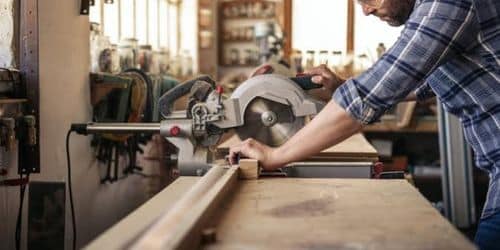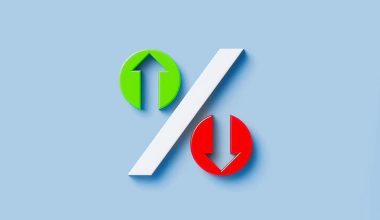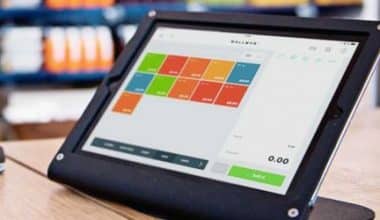Every business requires equipment for advancement and efficiency, but what if you can’t afford it? Equipment loans help you purchase the necessary equipment to run your business. And this is why equipment financing companies exist; they fund equipment loans at a fixed interest rate. In this post, we provide a list of the best companies that offer equipment loans to businesses. For instance, farm equipment loans apply to farmers while heavy equipment loans apply to industrialists.
What Is Equipment Loans?
Equipment loans refer to credit provided under the equipment loan contract. An equipment loan is a predetermined amount of money from a lender used to buy heavy machinery and automobiles. When a business owner decides to purchase equipment for their company but does not have the required amount to purchase the desired machinery, he/she may opt for a loan. Now, this is where equipment loans come in. What equipment loans simply do, in this case, is to provide the required money or cash to purchase the equipment.
Examples of Equipment Loans
- Tractors
- Combines
- Hay Balers
- Trucks
- Timber Harvesting Equipment
- Trailers
- Grain Bins and Facilities
- Livestock Equipment
- Loaders
How Does an Equipment Loan Work?
The equipment loan is mostly sponsored by banks and businesses that finance the equipment. These loans can be used to cover the cost of buying new machinery and equipment or replacing them. But in equipment loans, there is no need for additional security as the purchased equipment is used as collateral.
The lender permits the borrower up to 95% of the cost of the equipment and 60 months as the normal repayment duration. But processing it is extremely quick compared to other loans and just necessitates a little amount of paperwork.
Though it is quite advantageous to spread out the cost of equipment over a long period of time, such as years, a businessman who needs equipment might make a sensible financial choice by applying for a firm equipment loan. He or she may purchase practically any type of business equipment with the help of these loans.
However, the amount that can be borrowed differs depending on the kind of equipment the entrepreneur is buying and whether the equipment is new or used. The bulk of equipment loans usually have fixed interest rates between 8% and 30% and a specified term duration, providing assurance that the monthly payments won’t vary.
The length of the term extension will depend on the kind of equipment and its lifespan. Only a small percentage of lenders would consent to extend the term of an equipment loan past the predetermined expected useful life of the equipment itself.
Types of Equipment Loans
- Construction Equipment
- Manufacturing Equipment
- Corporate Aviation
- Automobiles and Allied Industries
- IT and office equipment
- Electronics & Appliances
- Health Care
Details That Are Required to Get an Equipment Loan
#1. Credit Score
Equipment financing companies may review your credit score, the best credit score for this loan is 650 and above. Besides if you have a good credit score there will be no much trouble getting the loan to approve quickly.
#2. Identifying Information
The borrower must be above 21 and under 65, and they must also provide the lender with the required paperwork and information. Along with a certificate of identity and address, the borrower’s personal information and business information are required.
#3. Details of the Equipment
A purchase invoice for the equipment that includes installation, delivery, and other expenditures, as well as the latest three months’ worth of business bank statements, must be provided.
The lender also evaluates the documents for validity after receiving the loan application and supporting paperwork, and if everything checks up, the construction equipment financing is approved.
It is not difficult to obtain financing for equipment, and frequently, the equipment dealers have connections to financing firms that make loan approval even simpler. The following documents must be submitted as part of the application procedure for an equipment loan:
- PAN card, Aadhar card and Voter’s ID
- Resident Address Proof
- Business Located Address proof
- Business registration Proof
- Last Past months’ Bank statement
- Passport size photos of applicant
- Two years of income tax returns & Audited financials
- Suppliers and Machineries name in Detail
Business Equipment Loans
Business equipment loans are loans you collect for your business equipment. To run a successful business, one needs the latest equipment and machinery. One should also make sure that the existing machinery is in fine condition to ensure business continuity. Procuring the latest technology tools is an important business process. These machinery & equipment are essential to the long-term asset building needs of the business.
How to Get Business Equipment Loans
Although each financial institution has its own application procedure, there are certain common steps you can take. Follow these steps to obtain business loans for equipment financing from a bank or internet lender:
#1. Analyze the Demands of the Company.
Consider how much you need to borrow and whether it is a required expense before applying for equipment financing. Calculate whether the new piece of machinery or equipment will boost operational effectiveness, raise profitability, or otherwise strengthen the company’s competitive advantage.
#2. Check Your Credit Records on a Personal and Commercial Level.
Although the underlying collateral is used to obtain equipment financing, lenders still want to be sure that borrowers will be able to pay back the loan.
Before making a purchase, check your credit score for both personal and, if applicable, business purposes.
This can assist you in determining your likelihood of approval and offer guidance on how to enhance your credit profile before applying. To be eligible, borrowers must have a personal credit score of at least 650.
#3.Research the Best Equipment Financing Companies.
Lenders provides variety of financing choices, interest rates, and repayment terms. Because of this, some financial institutions might be a better fit for the requirements of your company than others. Spend some time locating a lender that provides the financing you require, competitive rates, and payback terms that fit inside your spending plan.
#4. Make a Formal Application.
Apply on the lender’s website or in person at a branch after you’ve found one that meets your borrowing requirements. For more information on how to apply for equipment financing, speak with the financial institution as each lender has different guidelines and requirements.
Equipment financing is a service provided by many suppliers and manufacturers. If you don’t want to work with a bank or don’t believe you’ll be eligible for traditional financing, find a vendor who offers in-house financing on the equipment you need. The same is true for the numerous vendors who provide equipment leasing plans with no down payment and lax eligibility requirements.
Cost of Business Equipment Loans
The typical interest rate for business equipment loan borrowers ranges from 2% to 20%. Application and origination fees, on the other hand, might also be associated with equipment financing, which would raise the overall cost.
However, keep in mind that application fees could be a warning sign since lenders shouldn’t ever charge a fee prior to approving a loan application. Approximately 3% of the total loan amount will be taken out as origination fees for business owners.
Last but not least, a down payment is typically required for equipment financing, ranging from 15% to 20% of the total cost, though this percentage can vary and some lenders don’t even ask for it. When selecting an equipment financing loan, compare lenders based on their overall financing costs.
Farm Equipment Loans
Farm equipment loans give farmers access to capital for equipment purchases. With the equipment you’re financing acting as collateral, farm equipment loans typically have short terms of 12 to 60 months. These loans often require weekly or monthly installment payments for repayment.
Farm equipment loans are an essential source of funding for farming all throughout the nation. You can get loans to help you acquire the equipment you need, whether you need to buy a tractor-trailer, irrigation equipment, or a high-tech fertilizer spreader.
As farmers upgrade their machinery to care for their crops, farm equipment loans have proven to be especially helpful. Farmers require a cost-effective approach to take advantage of self-steering tractors and industrial fertilizer applicators that fertilize crops at the micro level to benefit from agriculture’s most recent technological advancements.
With farm equipment loans, you have two choices: you may either lease the equipment or finance the purchase. When you finance it, and the debt is repaid, you become the owner of the machinery. But when you lease equipment, you are required to return it at the end of the lease term or pay a balloon sum to buy it outright.
When you won’t need the equipment for a while or when you’ll be upgrading it frequently, leasing can make more sense. You are guarded against depreciation through leasing. The drawback of leasing is that you cannot deduct your lease payments from your business taxes and you cannot accumulate equity in the equipment.
Farm Equipment Loans Providers
Options abound for farm equipment borrowers. From government-backed loans to alternative lenders, here are some ways to get a farm equipment loan.
#1. USDA Farm Loan Programs
The United States Department of Agriculture (USDA) offers financing for farmers and ranchers to start, grow, or manage their farms. The loans are aimed at consumers who are unable to obtain credit elsewhere.
The USDA offers both direct loans that the federal government guarantees for the benefit of lenders.
USDA agricultural loans include low-interest rates for qualified borrowers, but there is typically more paperwork and a longer approval process. The USDA provides a range of lending options
#2. Captive Lenders
A few companies dominate the farm equipment market, some of which have in-house financing divisions. These lenders, also referred to as captive finance businesses, engage with you to arrange to finance for your purchase at the point of sale.
The interest rates charged by captive lenders vary depending on the performance and credit history of your company; they might range from 0% to 4%. Other top agricultural machinery producers that provide farm AGCO and CNH Industrial are examples of equipment lenders.
#3. Bank Loans
An additional choice for individuals with strong credit is a bank loan. Given that Farm Bureau Bank has focused on agricultural enterprises since 1999, it is a well-liked lender for farmers. The bank offers terms lasting seven years, low, competitive interest rates, up to 90% financing for new equipment, and 85% financing for secondhand equipment.
Loans can be repaid by borrowers on a monthly, quarterly, semiannual, or annual basis. However you will need to produce a lot of documents, and the bank can ask for a down payment.
#4. Alternative lenders
For borrowers who seek quick funding and an easy approval process, several alternative lenders provide farm equipment loans. Providers include:
- AgDirect
- Balboa Capital
- Credit Capital
Best Equipment Financing Companies
#1. Crest Capital
The Atlanta, Georgia-based Crest Capital is a provider of leasing and equipment financing.
In order to buy or lease new or used equipment, businesses can get financing from Crest Capital.
It offers small and medium-sized businesses lease and loan contracts for furniture, vehicles, equipment, and software. In addition, Crest Capital provides leasing and financing for a variety of general equipment types, including those used in agriculture, automotive diagnostics, food service, forestry, health, industrial, manufacturing, and medicine.
#2. National Funding
National Funding provides both equipment financing and short-term working capital loans. It specifically provides working capital loans with durations ranging from four months to two years, payable daily or weekly, and amounts between $5,000 and $500,000.
Additionally, entrepreneurs can qualify for finance for equipment up to $150,000. National Funding may be a good lender for a variety of firms because it also provides flexible qualification standards for both lending types.
#3. Currency
With CurrencyFinance, you can quickly and securely provide point-of-sale financing for expensive assets at low fixed rates with little or no down payment. Using Currency Finance is cost-free for sellers. Currency Finance provides quick, affordable financing for purchasers. Buyers frequently receive same-day financing, which speeds up purchases.
The best rates are automatically determined for buyers by CurrencyFinance, which also makes loans of up to $500,000 possible with durations of up to 72 months.
#4. US Business Funding
In every sector, US Business Funding is here to support both expanding and established businesses. Their major priority, in both the public and private sectors, is to provide their clients with the financial solutions they require to maintain and expand their success.
They, therefore, provide a wide range of practical services, such as vendor programs, capital equipment loans, and leasing options. One of the best equipment financing companies us business funding offers simpler and more reasonable solutions to lease equipment to clients..
They provide working capital and leases ranging from $10,000 to $10,000,000. This means that they can tailor financial solutions to your particular needs.
The experts at US Business Funding work hard to support both larger businesses that have already had years of success as well as new business owners who are just starting started. When you use their services, you can anticipate affordable prices, a rapid turnaround, and unmatched customer service.
#5. Fundera by NerdWallet
Fundera is one of the best equipment financing companies for small business financial solutions. They provide expert insights and tailored options—from loans to credit cards to bank accounts—so business owners can shop and compare financial choices they often don’t know they have.
They partner throughout every stage of your business, helping you weigh the best-fit financial options based on your current needs and eligibility. Their combination of technology and financial expertise ensures business owners make their smartest business decisions yet.
Heavy Equipment Loans
Businesses can use heavy equipment loans to borrow money to buy expensive machinery and spread payments rather than having to pay for everything at once. Heavy equipment users frequently rely on that equipment to complete their tasks and that is why they take loans.
You need your equipment to be in good operating order, whether you’re a construction manager or a contractor, to prevent delays in the workplace. Heavy equipment is among the most expensive items a company can purchase for loans. Without depleting your cash reserves, you can rent or buy the equipment your company needs with the help of industrial equipment loans.
Consider heavy equipment loans if you don’t want to buy a sizable piece of equipment entirely. Business owners can spread out the expense of machinery via heavy equipment loans or leases.
They might assist industrial organizations, like construction or landscaping companies, in quickly acquiring critical equipment. Heavy equipment loans may be able to help you complete the task, even if your credit is less than ideal, if you need equipment to build, dig, flatten, or carry massive amounts of materials.
Examples of Heavy Equipment
- Cement mixers
- Drills
- Farm equipment
- Forklifts
- Jackhammers
How to Take Heavy Equipment Loans
The equipment itself would be the main determinant of your eligibility for heavy equipment loans. Usually, heavy equipment would be financed by loans. secure the equipment, so if you can’t pay back the loan, the lender might take it. You probably wouldn’t need to provide extra business assets as collateral because the lender might be more lenient with regard to other standards.
But you should still anticipate that a lender will look through your business’s finances and credit history. Your ability to borrow money in the end and the interest rate you pay would likely depend on the following factors:
- Price of the equipment
- Personal and business credit score
- Financial standing of the business
When requesting loans for heavy equipment, you might additionally need to submit a number of documents. A lender might request:
- Financial records
- From the supplier or distributor, quote or invoice for equipment.
- Audited financial statements or company tax returns.
- All guarantors’ personal tax returns
Heavy equipment loans is frequently easier to obtain for people with terrible credit compared to other business finance options. If your personal credit rating is below 600, look into heavy equipment financing firms that work with business owners with bad credit. For instance, Heavy equipment loans for people with negative credit is available from First Capital Business Finance. Remember that interest rates on loans from lenders with negative credit may be exorbitant.
Is it Hard to Get a Loan For Equipment?
Equipment loans are typically authorized (or denied) rather fast. Consider applying for a small business line of credit with a nontraditional lender like Kabbage as one option to expedite the process.
How Long Can You Get a Loan for Equipment?
Equipment loans typically settle in the quickening range of loans. You’re looking at a wait time of a few days to a week or two, depending on the lender you use. The SBA loan program, which typically takes two to three months, is an exception.
Can I Get a Loan to Buy Tools?
Depending on the equipment financing company you choose and the requirements of your company, you must choose the best. Also, you may be able to obtain an equipment loan of up to 100% of the value of the equipment you wish to acquire. With interest, you pay back the debt over time.
How Much Equipment Loan Can I Get?
There are general requirements that borrowers should anticipate meeting, even though each bank and financial institution will have their own set of requirements for lenders to receive an equipment loan. Loan amounts typically vary from $10,000 to $500,000 with durations of two to seven years and interest rates of 6% to 9%.
Conclusion
Equipment loans help businesses purchase equipment they need to increase efficiency. When taking equipment loans, ensure to study the terms and conditions applicable. Do research on the best equipment financing companies that fit your desired interest rates, duration, and so on.
FAQs
Is equipment loan a liability?
Both an asset and a liability can be attributed to equipment. For instance, if you owe money on your equipment, that debt is a liability.
Can inventory be used as collateral?
Inventory is an asset on the balance sheet that may be used whether it is in storage or on shelves and is more than just things to sell. It is helpful for the creation of your product and serves as collateral in the event that you need to apply for inventory financing.
How does a blanket lien work?
A blanket lien is a lien that grants the power to seize all of the debtor’s assets used as security in the event of nonpayment. Theoretically, a blanket lien gives a creditor a legal interest in all of the assets used as security by the debtor.
{
“@context”: “https://schema.org”,
“@type”: “FAQPage”,
“mainEntity”: [
{
“@type”: “Question”,
“name”: “Is equipment loan a liability?”,
“acceptedAnswer”: {
“@type”: “Answer”,
“text”: “
Both an asset and a liability can be attributed to equipment. For instance, if you owe money on your equipment, that debt is a liability.
“
}
}
, {
“@type”: “Question”,
“name”: “Can inventory be used as collateral?”,
“acceptedAnswer”: {
“@type”: “Answer”,
“text”: “
Inventory is an asset on the balance sheet that may be used whether it is in storage or on shelves and is more than just things to sell. It is helpful for the creation of your product and serves as collateral in the event that you need to apply for inventory financing.
“
}
}
, {
“@type”: “Question”,
“name”: “How does a blanket lien work?”,
“acceptedAnswer”: {
“@type”: “Answer”,
“text”: “
A blanket lien is a lien that grants the power to seize all of the debtor’s assets used as security in the event of nonpayment. Theoretically, a blanket lien gives a creditor a legal interest in all of the assets used as security by the debtor.
“
}
}
]
}
References
- Law insider
- fitsmallbusiness
- bankbazaar
- business
- investopedia
- national funding
- lendingtree
- forbes
- usbfund
- gocurrency
- forbes
- balboacapital
Related Articles
- Black Friday: A detailed guide & baby steps to get juicy deals (+ free tips)
- HOW DO BUSINESS LOANS WORK: What It Is and How It Works
- Capital Resources Definition: Why It Is Key For All Businesses
- Sources of finance: A foolproof list for small businesses and entrepreneurs
- BUSINESS LOANS BAD CREDIT: Definition and How to Get It
- CAPITAL LOSS TAX AND DEDUCTIONS EXPLAINED!






